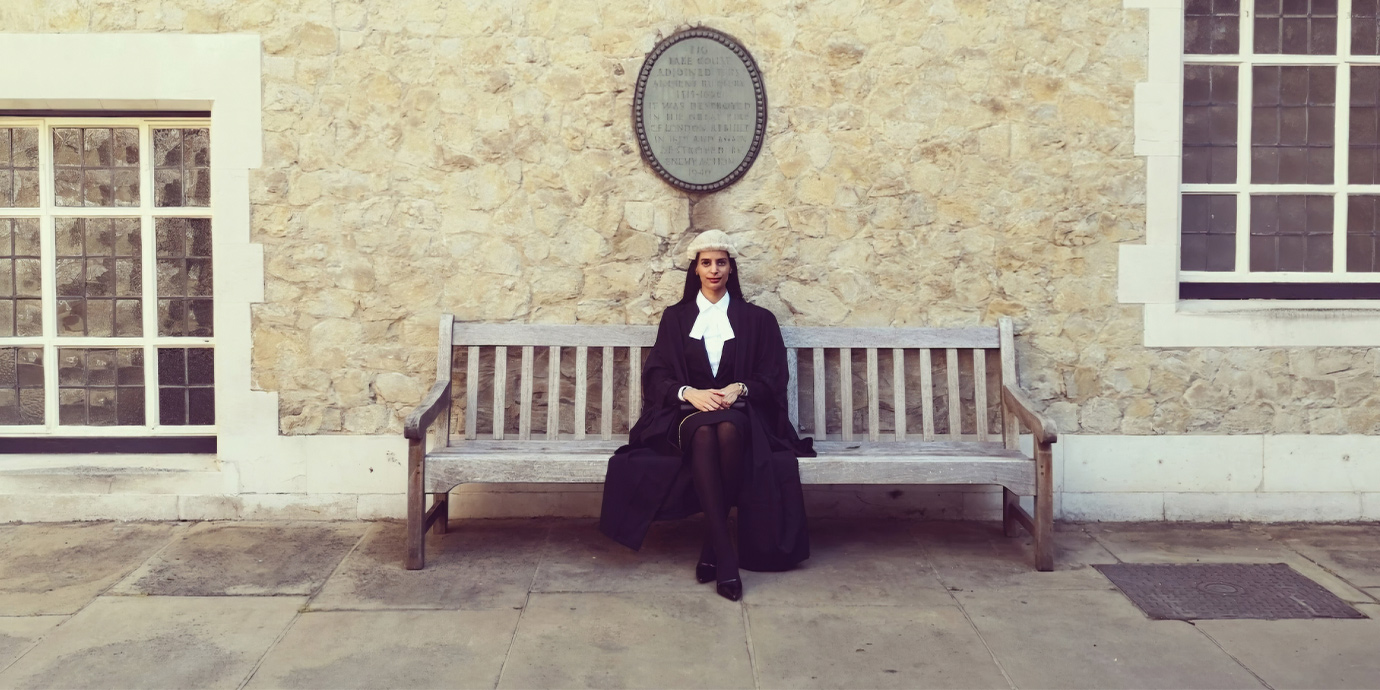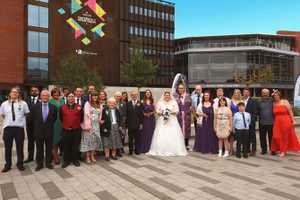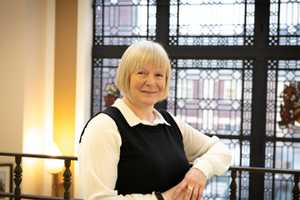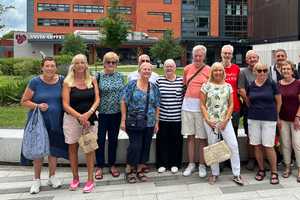For someone who never misses a beat in her work as a senior litigation executive, specialising in employment law, Sukhii Garcha’s journey into law hasn’t been as linear as her school day ambitions would suggest. She qualified as a barrister – though is unregistered – and is currently on the solicitor qualification path, carving her own route through the legal profession with heart, grit and resilience.
“I’m an unregistered barrister,” she clarifies. “I’ve got the qualifications, I’ve been called to the Bar, but unfortunately never secured my pupillage – the final step to become a practising barrister. Plus, those five years you have to secure one went by quicker than expected!”
Her legal journey started close to home, with an LLB degree at the University of Wolverhampton, then a move to Nottingham Law School for her Bar training and a Master’s in Law (LLM). A year out for work in the field helped her fund the Bar Professional Training Course (BPTC), grounding her with real-world experience before diving deeper into law.
She jokes that watching Bollywood courtroom dramas inspired her younger self. “I grew up watching lawyers argue cases on screen and I thought, ‘I can do that!’ I’ve always loved performing, writing, and public speaking. Law gave me an outlet for all of that.”
At university, she threw herself into every opportunity: mentoring, serving as Law Society President, representing fellow students as a class rep, and even working at the Students’ Union as a “Friendly Face” to new students. “It wasn’t just about the academic side of life. It was about giving back, being welcoming, and helping others find their feet.”
One student with autism stands out in her memory from her mentoring. Weekly chats turned into lasting confidence for him. “When I bumped into him years later, he’d started his own society. That’s something I’ll always be proud of – sometimes, just one conversation a week, giving someone the time and space to come out of their shell, can change a life.”
After graduation, a stint as an insolvency case administrator ended in redundancy just seven months in – a harsh reality check. “That period taught me how fragile employment can be. When clients come to me facing redundancy, I understand how much more it is than just losing a job. It’s about losing routine, identity, and stability.”
She pivoted toward employment law, initially working for an insurance company where she advised employers. “I loved it – helping employers understand their legal duties, reducing litigation costs. But I wanted more client-facing work, so I joined Spencer Shaw Solicitors.”
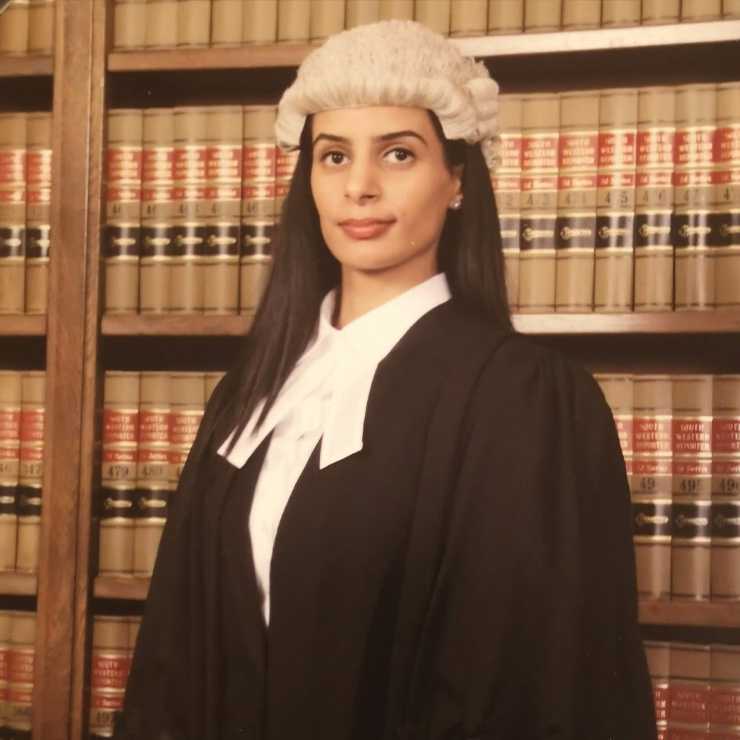
Now, she represents both claimants and respondents, often working with vulnerable individuals. One case in particular sticks with her – a client who had experienced workplace discrimination and suffered from severe social anxiety. “They struggled to even come into the office. I adjusted the environment to make them feel safe – from the entrance route to the pacing of our meetings, my approach when taking instructions, and understanding the importance of them needing to be heard. Their sister told me, ‘You’re the right person for them.’ That meant everything.”
Her work goes beyond legal jargon and case files. It’s about helping people sleep better at night.
Some of my clients come in broken. They’ve been discriminated against, harassed, ignored. To be the person who listens, helps them map out a path forward, and ultimately win or settle their case – that’s incredibly rewarding.
She’s now working toward qualifying as a solicitor through the Solicitors Qualifying Examination (SQE) route. “It’s quicker, more flexible, and suits where I’m at in life now. The vision I had at 21 doesn’t look the same at 30, and that’s okay. Law is a journey which you evolve with over time.”
Her family’s support has been unwavering. One of five siblings, she credits them – and especially her parents – for her work ethic and ambition. “My mum became a housewife to raise us, which in itself is a full-time job, and my dad worked constantly to provide. Education wasn’t something they had access to, so they always encouraged us to pursue it.”

At school I had to choose whether to study performing arts or law, because they were at different schools. “I would have absolutely loved to do both. One of the reasons I joined the Law Society at uni was because it allowed me to fill that void of being creative: combining public speaking and performance. Studying law filled the academic side of things. If someone asked me, ‘What would you do if you weren’t a lawyer?’ I just don’t know. I’ve always wanted to be a lawyer.”
Her siblings have taken varied paths – graphic design, IT, engineering, pharmacy – and they’re all fiercely motivated. “My youngest sister is training to be a doctor after qualifying as a pharmacist. She’s so driven. We’re each other’s sounding boards. If there’s a problem, we strategise. Hurdles don’t mean stop – they just mean we change direction.
“I spent most of my 20s in education because it was just something I had a real thirst for. I was constantly wanting to learn, constantly wanting to do work, to put myself out there and see what I could achieve and how I could give something back.”
Relocating from her home city didn’t slow her down either. She continues working remotely for her Birmingham-based firm, thanks to their flexibility and support. Despite the heavy emotional toll that legal work can carry – particularly in employment law – she remains focused. “You hear horrific stories: sexual harassment, racial discrimination, people being iced out after decades at the same job. You learn to balance empathy with objectivity. You can’t help anyone if you carry their pain too.”
Still, she doesn’t deny the strain. “It can be draining, at times. The tight deadlines, the long hours, and the unwillingness to compromise quality. Sometimes you lose cases. Sometimes clients don’t understand why the outcome wasn’t what they hoped for. But it’s all about resilience – that’s the word I’d associate with this profession”.
Long-term, she considers one day opening her own practice. And maybe, just maybe, return to university for a PhD in law and psychology. “I love the logic of law – breaking down big emotional problems into manageable parts. But I’m also fascinated by the human side of it: how people cope, respond, and recover.”
Her advice for students entering the field is simple:
Make your university experience yours. Ask questions. Seek support. You have chosen to be there – and you are paying for it! So don’t be afraid to create the opportunities that aren’t already there.
From mentoring law students to winning complex tribunal cases, she’s built a career around compassion, confidence, and clarity. Her path in law has made a real difference – for her clients, her community, and herself.
